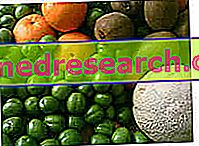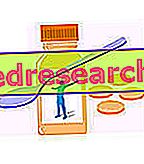Defenses of the Body
Each of us has three basic defensive lines against infectious agents:

- Non-antigen-specific innate immune defenses: they provide a rapid local response to the attack of any "invader" (fever, interferon, neutrophils, macrophages, NK cells = natural killer etc.).
- Antigen-specific immune responses: they are able to attack and eliminate certain invaders that have passed the two previous protective barriers (eg antibodies and T cells).
Non-specific defenses
The first two defenses are the basis of what is called non-specific resistance. This includes chemical, mechanical and, in some cases, humoral and cellular mechanisms that prevent colonization or infection by infectious agents. The human body, for example, tolerates a great variety of commensal microorganisms which, located mainly in the intestine, actively compete against many potential pathogens.
Some unspecific natural defenses against bacterial infections:
Lysozyme: enzyme present in tears, nasal secretions and saliva, capable of destroying the cell membrane of bacteria.
Sebum: the oil produced by the sebaceous glands of the skin exerts a protective action on the skin itself, increasing its impermeability and exerting a slight antibacterial action.
Mucus: a viscous, whitish substance secreted by the mucous membranes of the digestive system, the respiratory, urinary and genital ones.
Ciliated epithelium of the trachea: it is capable of fixing and retaining foreign bodies, filtering the air.
acid pH of the stomach: it has a disinfectant function, since it destroys many micro-organisms introduced with food
Skin: protective barrier against the penetration of substances and pathogens, both physical and biochemical due to the aforementioned properties of sebaceous secretion and sweat
Commensal intestinal microorganisms: they prevent the proliferation of pathogenic bacterial strains by subtracting their nourishment, occupying the possible sites of adhesion to the intestinal walls and producing active antibiotic substances that inhibit their replication.
Spermine in seminal fluid: prostatic secretions have bactericidal action
Vaginal commensal microorganisms: in normal conditions, a vaginal bacterial flora is present in the vagina which, together with the slightly acidic pH, prevents the excessive growth of pathogenic germs
Advice to increase natural defenses
Physical activity: sport, when it is not carried to excesses but is carried out in a healthy and balanced way, strengthens the immune system; it is not uncommon to hear people reporting the absence of colds or flu since they started playing sports. They are not afraid to challenge the bad weather to train, because it is unlikely that colds will take over.
The dietary supplement dedicated to athletes is all the more necessary as the physical resources dedicated to athletic commitment are greater. Among the most useful products to improve natural defenses we mention arginine, ornithine and glutamine.
In addition to relying on the consumption of a wide variety of fresh and natural foods (fruit and vegetables in particular), the ideal diet for strengthening the immune system also includes the consumption of yogurt, functional pre and probiotic foods.
If you find out empirically that you are intolerant or allergic to a particular food, you should temporarily exclude it from your diet; once introduced, a substance towards which one is intolerant may gradually alter the digestive efficacy and the protective efficacy of the bacterial flora; in case of food allergies the autoimmune response concentrates the defenses towards something that has nothing pathological, facilitating the aggression of true pathogens.
Working or living in temperatures below 20 ° C raises the chances of getting sick.
Supplements and drugs useful for strengthening the natural defenses (immunostimulants); the order, even if questionable due to the very nature of the subject treated, is not accidental but reflects a decreasing, albeit questionable, scale of health efficacy: echinacea, high-dose multivitamins, vitamin C, vitamin E, eleuterococcus, ginseng, jelly real, spirulina, arginine, propolis, glutamine, honey.




